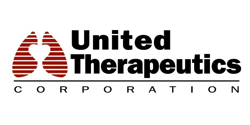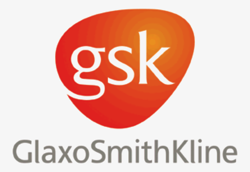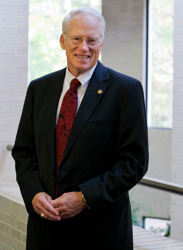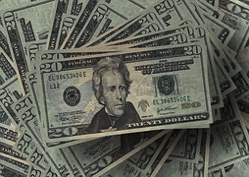
Researchers who are developing miniature models of human organs on plastic chips have touted the nascent technology as a way to replace animal models. Although that goal is still far off, it is starting to come into focus as large pharmaceutical companies begin using these in vitro systems in drug development.
“We are pretty excited about the interest we get from pharma,” says Paul Vulto, co-founder of the biotechnology company Mimetas in Leiden, the Netherlands. “It’s much quicker than I’d expected.” His company is currently working with a consortium of three large pharmaceutical companies that are testing drugs on Mimetas’s kidney-on-a-chip. At the Organ-on-a-Chip World Congress in Boston, Massachusetts, last week, Mimetas was one among many drug and biotechnology firms and academic researchers showing off the latest advances in miniature model organs that respond to drugs and diseases in the same way that human organs such as heart and liver do.

The U.S. Department of Health and Human Services' Office of the Assistant Secretary for Preparedness and Response's Biomedical Advanced Research and Development Authority (BARDA) awards a two-year $19.7M contract to Emergent Biosystems (NYSE:EBS) to develop and manufacture cGMP (current good manufacturing practice) lots of three Ebola monoclonal antibodies in CHO (Chinese hamster ovary) cell lines at a scale of 2,000 liters.

Mayo Clinic in Jacksonville, Florida, and United Therapeutics Corporation (NASDAQ: UTHR) today announced a collaboration to build and operate a lung restoration center on the Mayo campus. The goal is to significantly increase the volume of lungs for transplantation by preserving and restoring selected marginal donor lungs, making them viable for transplantation. The restored lungs will be made available to patients at Mayo Clinic and other transplant centers throughout the United States.

The Francis Crick Institute, the UK’s newest biomedical research facility, and GSK, the UK’s largest pharmaceutical company, are to partner on an open innovation collaboration exploring new avenues of medical research and drug discovery across a broad range of diseases, with a view to achieving breakthroughs in the understanding of human disease.
This is the first collaboration to be established between the Crick and a pharmaceutical company.

We are excited to be returning to Growlers in Gaithersburg this month for BioBuzz MoCo with our Sponsor Maryland Innovation Initiative (MII), a TEDCO program, as we host one of their “Meet TEDCO Program Managers Happy Hour“. The networking event will feature a short presentation followed by happy hour allowing you to network with program managers and your peers. MII is designed to foster the transition of promising technologies with significant commercial potential from the Maryland academic research institutions: Johns Hopkins, Morgan State, and University of Maryland College Park, Baltimore and Baltimore County campuses. The program is designed to promote commercialization of research conducted in the partnership universities and to leverage each institution’s strengths.

Johns Hopkins works not only to foster startups whose products have the potential to improve the well-being of people all over the world, but also to produce savvy investors with business acumen and a strong sense of market dynamics.
Earlier this year, a team of Johns Hopkins University graduate student investors-in-training won the Entrepreneurs’ Choice award at the 2015 mid-Atlantic regional final of the Global Venture Capital Investment Competition (VCIC), during which judges evaluate the competencies of teams of student venture capitalists.

William (Brit) Kirwan has been a top university administrator over nearly three decades of vast change in higher education.
During that time he's seen the rise of online learning, a change in the funding dynamic of public colleges, an increased emphasis on obtaining a college education and much, much more. The 77-year-old Kirwan retired last month from his 13-year chancellorship of the University System of Maryland.

Symptoms associated with Parkinson’s disease include tremor, muscle stiffness, and slowed movement that make it difficult to execute such simple tasks as holding an eating utensil steady, and patients currently have few options for relief outside of a hospital or clinic. Some medications can help, but over time they tend to become less effective. To give Parkinson’s patients another in-home option, a research team of Johns Hopkins University graduate students have invented a headband-shaped device that delivers noninvasive brain stimulation to help suppress symptoms.

Last fall, David Narrow and his colleagues reached a critical juncture in the development of their fledgling medical technology company, Sonavex. As Narrow puts it, their brainchild needed nurturing, and a suitable—and affordable—environment for it to happen in.
The company's core concept, he says, was worth the TLC. Narrow and Johns Hopkins Hospital plastic surgeon resident Devin O'Brien Coon, who met while studying in Johns Hopkins' biomedical engineering graduate program in the Whiting School's Center for Bioengineering Innovation and Design, had identified a clinical problem that needed addressing. Each year, more than 550,000 people in the United States undergo medical procedures—soft-tissue reconstruction, organ transplants, bypass surgeries—in which arteries or veins are surgically connected, exposing the patient to the risk of a blood clot. Detecting the clot in a timely manner, before it blocks the vessels and leads to catastrophic complications, becomes paramount. What's needed, Narrow says, is a real-time clot-monitoring device that can be used by nurses post-surgery.

The May 15 groundbreaking ceremony for Johns Hopkins Technology Ventures’ new FastForward East location at 1812 Ashland Ave. was about more than just the much-needed additional space the new location will provide the innovation hub.
The ceremony represented the robust growth of the Johns Hopkins innovation culture that is driving economic development in Baltimore, and it signified Baltimore’s strong prospects for becoming a home for tech-savvy companies, offering a wide range of new jobs to Baltimore residents and cultivating a booming, technology-based economy.

American companies continued to attract eye-watering sums of money from venture capitalists in the last quarter, according to a report released Friday.
U.S. firms picked up more than $17 billion in 1,189 deals through the second quarter of 2015, the highest amount since 2000, according to the report by PricewaterhouseCoopers and the National Venture Capital Association, which is based on data from Thomson Reuters.

Sharath Mekala’s two-person tech startup isn’t a textbook government contractor.
Village Defense, spawned through a startup incubator called 1776, develops a free app that lets neighbors send real-time alerts to one another if they notice suspicious activity. A premium version, which costs $125 a month, is designed for homeowners associations.

Wednesday, July 22, 2015, 10:00am - 12:30pm
Throwing a perfect pitch to potential investors is a skill. Learn how to develop a concise description of your business along with some tips for presenting it. This is an interactive workshop where you will have the opportunity to present and pitch. Fee: $25.

Wednesday, July 22, 2015, 04:30pm - 06:30pm
Dr. Gordon Dammann, DDS, founder of the National Museum of Civil War Medicine (NMCWM), will be available to discuss the importance of Frederick both strategically and medically in the Civil War. He will also offer a brief history of the NMCWM. The museum exhibits will be open to visit during the event.